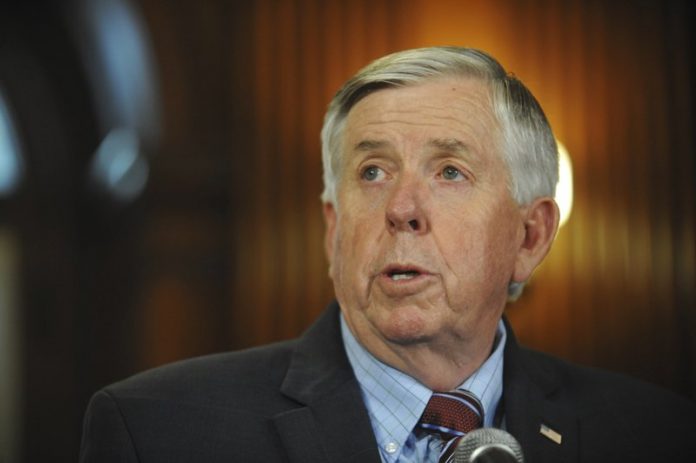by Margaret Stafford, AP
JEFFERSON CITY, Mo. (AP) — Missouri will continue to allow lawfully admitted refugees to settle in the state in communities that request them, Gov. Mike Parson announced Tuesday.
The governor’s decision came in response to an executive order issued in September by President Donald Trump, which, for the first time in U.S. history, gave governors and local governments the option to refuse to accept refugees. Refugees would not be allowed to automatically settle in states where governors don’t publicly consent, even if cities or counties welcomed them.
In a letter to Secretary of State Mike Pompeo, Parson said Missouri has a long history of immigration. He wrote that nearly 18,000 refugees have settled in 45 Missouri counties since 2002 and noted many of them “have become vital members of our communities.” He also said faith-based and community organizations work to help refugees resettle, primarily in St. Louis, Kansas City, Columbia and Springfield.
“We will continue to work hard to ensure refugees become a thriving part of our communities, and I am confident this demonstration of compassion will mark the first step in these immigrants become patriotic and productive fellow Americans,” Parson said in the letter.
Parson was one of about a dozen Republican governors who had not publicly consented to accepting refugees. More than 30 governors have consented. Their decisions must be made by Jan. 21 so resettlement agencies can receive federal funding in time to plan where to place refugees.
Kelli Jones, Parson’s spokeswoman, said Missouri waited to make its decision until it received further guidance from the the federal government after the order was issued.
The International Institute of St. Louis, which helps resettle refugees, applauded Parson’s decision, The St. Louis Post-Dispatch reported.
“We are incredibly excited and gratified to learn that Missouri will remain a welcoming state for refugees from war-torn countries around the world since Governor Parson has given consent for continued resettlement,” Anna Crosslin, president and CEO of the International Institute of St. Louis, said in a statement.







